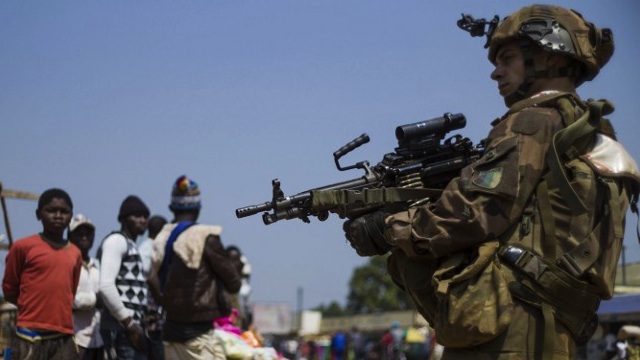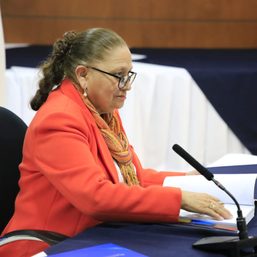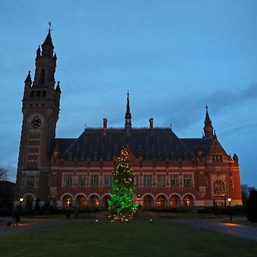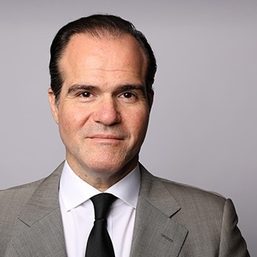SUMMARY
This is AI generated summarization, which may have errors. For context, always refer to the full article.

BANGUI, Central African Republic – Amnesty International said Thursday, December 19, the Central African Republic’s mostly Muslim ex-rebels killed nearly 1,000 people in the capital Bangui two weeks ago in a rampage avenging deadly Christian militia attacks.
Communal violence exploded in Bangui after silently terrorizing more remote parts of the country since a March coup made enemies out of Muslims and Christians who had long lived together in harmony.
European nations have offered assistance to help quell the violence, as French efforts to disarm fighters appeared to be paying off after the bloodshed earlier this month.
“The tension has eased considerably,” said General Francisco Soriano, who heads the French troops in the impoverished country. “It’s been rather calm in Bangui since Friday (December 13),” he said. “Is it sustainable? I don’t know.”
A senior official with the African Union’s peacekeeping force MISCA, said more than 7,000 fighters from the former Seleka rebel group which carried out the coup, had been disarmed in the past 10 days and were mostly staying in their barracks.
“We seem to be returning to a more normal situation,” he said.
However the full extent of the violence that erupted in Bangui on December 5 began to emerge with an Amnesty International report based on a two-week fact-finding mission to the country.
The UN earlier estimated 450 people had been killed in Bangui and 150 elsewhere in the country.
The two-day spasm of violence began when Christian militias known as “anti-balaka” (anti-machete) went door-to-door in some districts in the capital “and killed approximately 60 Muslim men,” Amnesty said in a statement.
“The de facto government forces, known as ex-Seleka, retaliated on a larger scale against Christians in the wake of the attack, killing nearly 1,000 men over a two-day period and systematically looting civilian homes. A small number of women and children were also killed.”
‘No doubt’ of war crimes by both sides
The mostly Christian country spiraled into chaos after Michel Djotodia’s mainly Muslim Seleka rebel group overthrew Bozize in March.
Seleka was disbanded after the coup, but many rebels went rogue, terrorizing civilians with massacres, rapes and lootings.
In response, locals formed Christian vigilante groups, leading to an explosion of sectarian violence.
The UN estimates some 210,000 people have been forced from their homes in the capital alone.
Some badly affected cities, like Bossangoa in the northwest, have become little more than ghost towns, with terrified residents huddling in Christian and Muslim camps, separated by a strip of no man’s land that only aid workers dare cross.
The information gathered “has left no room for doubt that war crimes and crimes against humanity are being committed by all parties to the conflict,” said Christian Mukosa, Amnesty International’s Central Africa expert.
France sent 1,600 soldiers to the Central African Republic in the wake of the bloodletting to bolster African troops there and try to restore calm.
Despite the foreign intervention, “civilians are being willfully killed on a daily basis, with at least 90 additional people killed since 8 December,” Amnesty said.
Human Rights Watch warned in its own report Thursday that the French led intervention should be bolstered by other countries.
“The UN Security Council needs to act quickly to bring this evolving catastrophe to a halt,” said Peter Bouckaert, who authored the HRW report.
“The potential for further mass violence is shockingly high,” Bouckaert said.
After a plea from Paris, other European countries have pledged to pitch in and help France restore order to its chaotic former colony.
On Wednesday, December 18, France’s European Affairs Minister Thierry Repentin said Germany and Britain were providing “logistical support” with transport planes, while Belgium was considering sending around 150 troops for a “protection mission” to secure the airport in Bangui.
The Spanish government has backed plans to send a Hercules military transport aircraft with a “maintenance and support unit” of up to 60 personnel.
And the United States has contributed by airlifting some 850 Burundian troops into the country to form part of an eventual 6,000-strong African force.
The Central African crisis is set to top the agenda at a European Union summit in Brussels on Thursday and Friday.
Meanwhile in Bangui, rebel leader-turned-president Djotodia held talks with Prime Minister Nicolas Tiangaye in a bid to defuse tensions after three ministers were unexpectedly fired by presidential decree at the weekend.
Tiangaye, a former opposition member who was kept on as premier after the ouster of president Francois Bozize, has fled his looted home in Bangui and is now living at a base by the airport under the protection of an African-led force. – Rappler.com
Add a comment
How does this make you feel?


![[WATCH] Try This: Empanada Salteña from Argentina](https://www.rappler.com/tachyon/2023/04/try-this-empanada-saltena-argentina.jpg?resize=257%2C257&crop=765px%2C0px%2C1037px%2C1037px)


There are no comments yet. Add your comment to start the conversation.